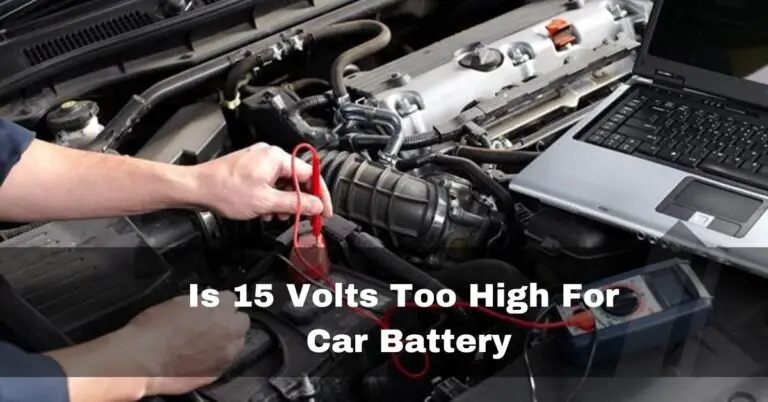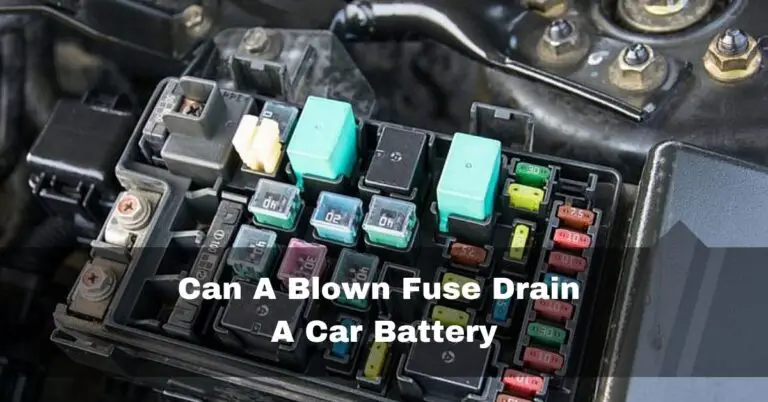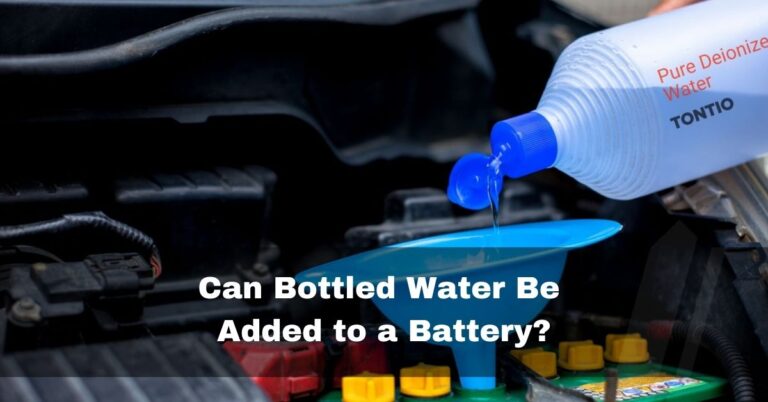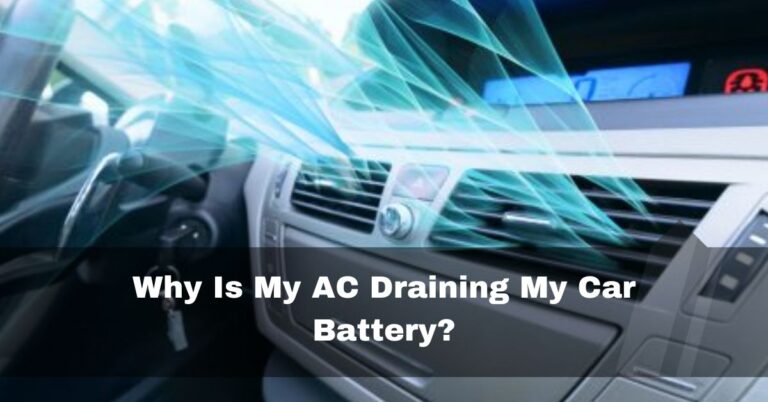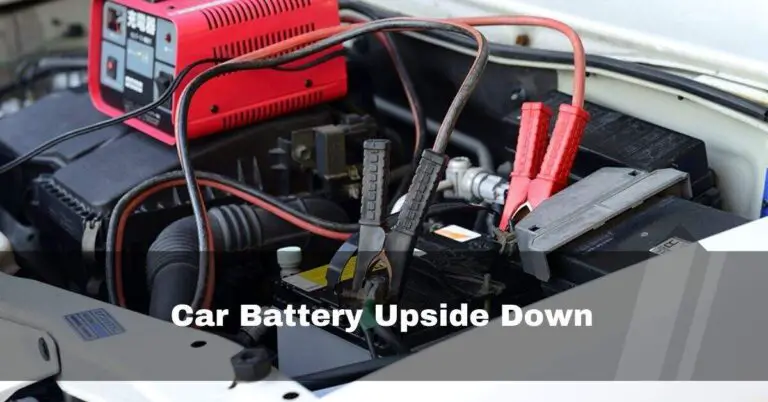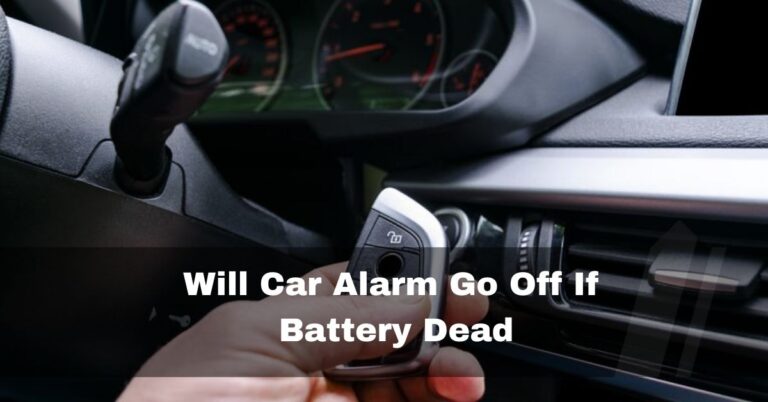Can You Drink Car Battery Water – Do Not Drink! But Why?2024
You know, I’ve come across this question quite a few times – can you drink car battery water? It’s a common misconception, and I faced the same confusion when I first started taking care of my car’s battery.
Can You Drink Car Battery Water (Short Answer)
If you are talking about the water inside the cells of a lead-acid battery, then no: it’s not water, it’s sulphuric acid and will do a lot of very painful, potentially fatal, damage. Touching it would burn your skin or eyes if you came into contact with it.
I want to share my experience with you because, like me, you might be wondering about the safety of car battery water. Well, the truth is, car battery water is not meant to be consumed.
Table of Contents
Understanding Car Battery Water:
If you’re referring to the water inside lead-acid battery cells, the answer is no: it’s sulfuric acid, which will cause severe and even fatal harm. Sulfuric acid and water are used in car batteries to make an electrolyte solution that promotes the chemical reactions required for energy storage and discharge.

The electrolyte levels may drop due to the water in the battery evaporating over time. When recharging, it is advised to add distilled water to the battery to keep it operating correctly.
Also Read: How To Fix Reverse Polarity On A Car Battery
is battery water safe to drink?
Is battery water drinkable? No, battery water is not safe to drink. The water used in batteries, especially in lead-acid batteries, is typically distilled water that serves as an electrolyte.
However, it may become contaminated with traces of electrolyte chemicals, such as sulfuric acid, and other impurities from the battery components. Ingesting battery water can be harmful and may cause health issues, including poisoning and chemical burns.
is battery water dangerous?
Yes, battery water is poisonous and dangerous. The electrolyte solution in batteries, especially in lead-acid batteries, often contains sulfuric acid, which is highly corrosive and can cause severe chemical burns to the skin and eyes. Ingesting the electrolyte can lead to poisoning.
Also Read: Car Battery Bubbling When Charging
what happens if you drink water with a battery in it?
Drinking water with a battery in it can be extremely dangerous due to potential contamination with battery chemicals, such as corrosive acids. Ingesting these substances can lead to chemical burns, poisoning, and serious health complications. Immediate medical attention is necessary if accidental ingestion occurs.
Why You Should Not Drink Car Battery Water?
Let me share a personal insight into why you should never drink car battery water. It’s not just a piece of advice; it’s a lesson I learned firsthand.
A while back, I was unfamiliar with the intricacies of car maintenance, and like many, I questioned whether it was safe to drink the water from a car battery. It might sound strange, but misinformation can lead to such curious thoughts. What happens if you drink battery water?
- Chemicals Hazardous: Sulfuric acid, a very corrosive and hazardous chemical, is present in the water used in car batteries. Sulfuric acid consumption can result in severe stomach, mouth, and throat burns. Additionally, it might harm internal organs and cause long-term health issues.
- Contamination: Car batteries pick up a variety of pollutants during use, including lead and other heavy metals. If ingested, these toxins offer serious health hazards and can leak into the water. For instance, ingesting lead can result in lead poisoning, which has adverse effects on the brain, neurological system, and other organs.
- Other Chemical Additives: Battery maintenance products and electrolyte additives are a few examples of extra chemicals that may be present in car battery water. These compounds are dangerous if consumed by humans and are not meant for human consumption.
Health Risks of Consuming Car Battery Water:
Drinking water from a car battery can have severe and even fatal health effects. They consist of
- Chemical Burns: Due to sulfuric acid’s extreme acidity, it is possible to sustain chemical burns to the digestive system. These burns can cause tissue damage, pain, and difficulty breathing and swallowing.
- Damage To Internal Organs: The liver, kidneys, and nervous system can be damaged by ingesting hazardous compounds and heavy metals in car battery water.
- Effects On Multiple Organ Systems: The chemicals in automobile battery water can potentially enter the bloodstream and spread throughout the body, causing systemic poisoning.
Also Read: Vaseline On Car Battery Terminals
Are battery and distilled water the same:
Despite being a battery water component, distilled water differs from battery water. Distillation is the process used to clean water. Water is heated during this process to create steam. Minerals and contaminants are left behind as they condense back into the water.

Lead-acid batteries containing battery water are utilized in automobiles and other vehicles. Sulfuric acid and distilled water are combined to create this water.
Battery water and distilled water differ from one another. Because it includes sulfuric acid, battery water is hazardous to consume.
What Is The Connection Between Distilled Water And Batteries?
As you are aware, water can recharge a car battery, but any water cannot recharge a battery. While tap water can be used for that, it is not advised. The minerals and contaminants in tap water are the cause of this. These contaminants may accumulate on the battery’s plates over time. They may lessen the battery’s performance and longevity.

Instead, you may recharge a car battery using clean water. Distilled water contains no minerals or other pollutants that could damage the battery. Distilled water has no effect on batteries, and metal engine parts will not corrode.
If you don’t have access to distilled water, you can use bottled water to recharge your car’s battery. Water that has been treated with chemicals or additives, such as ionized or alkaline water, should not be consumed. These liquids have the potential to damage the battery.
Can You Drink The Car Battery Refill Water Or Distilled Water?
Is battery distilled water safe to drink? Sometimes, distilled water is consumed. However, prolonged ingestion is not advised because extra minerals and electrolytes are required.

Drinking distilled water is safe. It might not be a good idea to use it to stay hydrated, and it might have different advantages than natural water sources. As a result of its mineral deficiency, continued use might deplete the body of minerals.
Here are some advantages and cons of distilled water in case you decide to give it a try.
Advantages Of Drinking Distilled Water:

- The water has been distilled to be pure. It is devoid of chemicals, minerals, or pathogens. For medical treatments, battery recharge, and scientific research, it is ideal.
- Tap water tastes better to some people than distilled water. Depending on its source and the treatments used, tap water’s flavor can fluctuate.
Also Read: The Car Battery Has Voltage But No Amps
Disadvantages Of Drinking Distilled Water:

- It is deficient in calcium, magnesium, and potassium, which are healthy nutrients. Some people prefer to obtain them through drinking water, even though there are other sources.
- Contrasted with other types of water, distilled water is more expensive. To make it, it needs specialized tools and energy.
- The environment may be harmed during distillation. Energy is needed for the process, and waste is created.
- It could be bland or flavorless to certain people, which makes it less alluring.
What Is The Substitute For Distilled Water?
A variety of options are available based on your requirements:
- Distilled Water: This kind of water is purified via ion exchange. It, like distilled water, removes the majority of salts and impurities.
- Reverse Osmosis Filtration: A reverse osmosis filtration system cleans reversible osmosis water. Most pollutants are absent from it as well.
- Purified Water: For drinking or cooking, filtered water is an alternative to distilled water.
- Boiling Water: Some pollutants and impurities can be removed with boiling water. It might not have the same impact as distilled water.
Related Questions:
1. Is it safe to drink battery water?
Drinking battery water is not safe due to potential bacterial contamination. It is not advisable to use battery water for consumption.
2. Is the water in a car battery toxic?
Is battery water harmful? Yes, the water in a car battery is toxic as it contains sulfuric acid, which is highly corrosive and can cause severe chemical burns to the skin. Ingesting the electrolyte solution is also poisonous.
3. Is distilled water for car battery drinkable?
Distilled water used in car batteries is not suitable for drinking due to its slightly acidic nature, which is beneficial for the battery but makes it unsuitable for consumption.
4. Is battery water hazardous?
Battery water used for washing batteries is hazardous because it becomes contaminated with sulfuric acid, corroded metals, and other materials
5. What happens if you touch battery water?
Touching alkaline battery acid briefly may cause contact dermatitis, resulting in redness or irritation on the skin. While it typically resolves on its own, it can cause temporary discomfort.
6. Is It Distilled Water In A Car Battery?
Within the battery are plates that are submerged in water. This water is typically distilled since it contains no ions or undesirable compounds that could erode the plates. Compared to filtered water, ordinary tap water hastens the battery’s deterioration.
7. Does Distilled Water Dehydrate You?
Consuming distilled water can result in dehydration and health problems because it lacks nutrients vital to our well-being.
8. Is Rainwater Distilled?
Rainwater occupies the highest place in the water cycle when seen in the context of the natural world. Therefore, we can drink untreated rainwater. The sun has disappeared because rainwater is clean, refined water.
9. Can I Boil Tap Water To Make Distilled Water?
Yes, Distilling is a straightforward procedure involving tap water heating until it becomes vapor. Any mineral residue is left behind when the vapor condenses into the water. Distilled water is the condensed liquid that is produced.
10. Should I wash my hands after touching batteries?
Yes, it is advisable to wash your hands after handling batteries as a general precaution. While most household batteries are not as hazardous as industrial or automotive batteries, it’s a good practice to maintain good hygiene.
Conclusion:
Due to its toxicity and potential health concerns, car battery water should not be consumed. Systemic toxicity, severe chemical burns, and organ damage can all come from ingesting automobile battery water. However, distilled water used to refill the battery is safe to drink but should not be used for an extended period. Safety should always come first when working with potentially dangerous materials and vehicle parts.
Also Read:
- Car Starts After Disconnecting And Reconnecting Battery
- Lightweight Car Battery Daily Driver
- Car Inspection After New Battery
- Car Stalling After Battery Change
Referernces:
- https://www.quora.com/Is-battery-water-safe-to-drink
- https://www.healthline.com/health/can-you-drink-distilled-water
- https://www.reddit.com/r/Advice/comments/et1a8q/can_i_drink_battery_water/
- https://www.cruisersforum.com/forums/f14/battery-water-distilled-drinking-water-vs-deionized-battery-water-108888.html
- https://www.acemechanics.com.au/battery-myth-6-should-i-use-normal-tap-water-to-top-up-the-water-level-in-the-battery/

